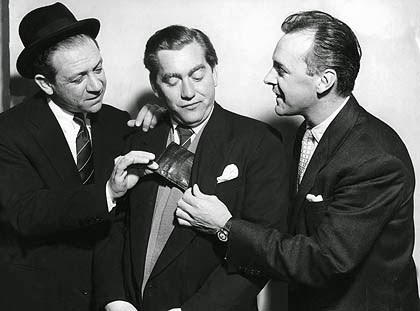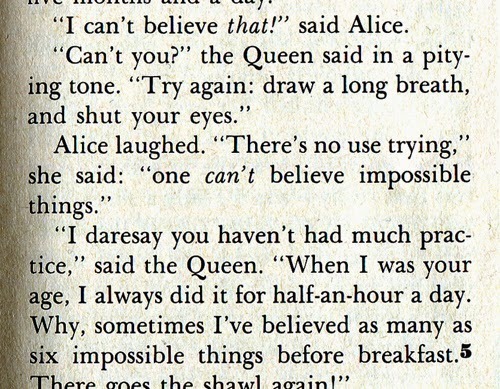Lexi Revellian's Blog, page 6
December 31, 2014
Thirty years ago and thirty years ahead
Part of my work in progress is set thirty years ahead. Musing about the changes that might happen in the next three decades, it seems useful to consider what has changed since 1984.
Things we thought okay in 1984 we don't think okay nowsmoking in bars, restaurants and other people's housesdog excrement on pavements - we didn't like it, but grudgingly accepted that to a dog, the whole of outdoors was a potential lavatorymilder forms of sexual harassmenthuge shoulder pads, streaky hair, clothes bigger than you were (like Princess Diana's wedding dress)burglar alarms that had to be turned off by a human, and frequently rang for three days straight over a bank holidayThings we have now we didn't have in 1984
personal computerssmart phonesinternet shoppingebooks and ereaders24 hour drinking, often outside the bar to accommodate smokersspeed cushions (because road planners are very very stupid)the London Congestion Charge (boo, hiss)fines on motorists (£135 million a year in the UK)a modest London one-bedroom flat costing half a million poundsSo what about thirty years' time? I really hope we get driverless cars, and if we do, people won't be able to understand how we endured the carnage on the roads: in the UK in 2013, 1,713 people were killed, 21,657 seriously injured. They'll also wonder why we put up with the pollution cars produce, and our streets being lined with parked cars. In London, most of us live in a car park.
Other possibilities: a cash-free economy, artificial intelligence, and undeniable climate change.
(And please, can we have drones? Amazon delivering by drone would be SO cool.)
What do you think will change in the next thirty years? Tell me in the comments.
Things we thought okay in 1984 we don't think okay nowsmoking in bars, restaurants and other people's housesdog excrement on pavements - we didn't like it, but grudgingly accepted that to a dog, the whole of outdoors was a potential lavatorymilder forms of sexual harassmenthuge shoulder pads, streaky hair, clothes bigger than you were (like Princess Diana's wedding dress)burglar alarms that had to be turned off by a human, and frequently rang for three days straight over a bank holidayThings we have now we didn't have in 1984
personal computerssmart phonesinternet shoppingebooks and ereaders24 hour drinking, often outside the bar to accommodate smokersspeed cushions (because road planners are very very stupid)the London Congestion Charge (boo, hiss)fines on motorists (£135 million a year in the UK)a modest London one-bedroom flat costing half a million poundsSo what about thirty years' time? I really hope we get driverless cars, and if we do, people won't be able to understand how we endured the carnage on the roads: in the UK in 2013, 1,713 people were killed, 21,657 seriously injured. They'll also wonder why we put up with the pollution cars produce, and our streets being lined with parked cars. In London, most of us live in a car park.
Other possibilities: a cash-free economy, artificial intelligence, and undeniable climate change.
(And please, can we have drones? Amazon delivering by drone would be SO cool.)
What do you think will change in the next thirty years? Tell me in the comments.
Published on December 31, 2014 08:52
December 25, 2014
Happy Christmas!

HAPPY CHRISTMAS TO ALL MY READERS
 Nature having unaccountably failed to provide snow, here is a picture of some. And a dog.
Nature having unaccountably failed to provide snow, here is a picture of some. And a dog.
Published on December 25, 2014 02:41
December 2, 2014
Killing Hitler
It is not possible to research a time travel novel without coming across the trope of going back in time to kill Hitler. You can listen to brilliant John Finnemore's sketch about it here, at about 26.30 minutes in.
But everything has unintended consequences. I've been thinking about one aspect of this lately, what with Plebgate, Emily Thornberry's snide Twitter photograph, and David Mellor, whose tirade at a taxi driver included the words:
"I’ve been in the Cabinet, I’m an award-winning broadcaster, I'm a Queen’s Counsel - you think that your experiences are anything compared to mine? And if you think you’re going to be sarky with me, get a better education before you try being sarcastic with me."
And I thought that though there is a lot wrong with our civilization, how nice it is that a de haut en bas attitude is deeply unfashionable these days. Bragging that you are superior because you are rich, successful, well born, white, male, or well-connected is likely to raise a chorus of boos, where not so long ago it was accepted. Perhaps this is connected to the world's horror at where Hitler's concept of German superiority led.
Hitler tapped into the secret belief most of us have that we are better than other people, a belief we should be aware of and treat with suspicion.
FULL DISCLOSURE: I have to admit, I harbour a deep inner conviction that I am better than people who get apostrophes wrong.
But everything has unintended consequences. I've been thinking about one aspect of this lately, what with Plebgate, Emily Thornberry's snide Twitter photograph, and David Mellor, whose tirade at a taxi driver included the words:
"I’ve been in the Cabinet, I’m an award-winning broadcaster, I'm a Queen’s Counsel - you think that your experiences are anything compared to mine? And if you think you’re going to be sarky with me, get a better education before you try being sarcastic with me."
And I thought that though there is a lot wrong with our civilization, how nice it is that a de haut en bas attitude is deeply unfashionable these days. Bragging that you are superior because you are rich, successful, well born, white, male, or well-connected is likely to raise a chorus of boos, where not so long ago it was accepted. Perhaps this is connected to the world's horror at where Hitler's concept of German superiority led.
Hitler tapped into the secret belief most of us have that we are better than other people, a belief we should be aware of and treat with suspicion.
FULL DISCLOSURE: I have to admit, I harbour a deep inner conviction that I am better than people who get apostrophes wrong.
Published on December 02, 2014 02:47
November 20, 2014
Time travel via Google
The current work in progress is to do with time travel, and in the course of the novel my characters will visit the same places at different eras. As usual, the setting is my part of London; even so, I sometimes check out a location virtually on Google Street View.
Yesterday I discovered a curious anomaly; most of Street View round Hoxton dates from July 2014. But there is one spot, just one, on the map where you can see my workshop in August 2008. And it's like going back in time.

So many changes - Hoxton Boutique has gone, the black door is now yellow, next door is a building site covered in scaffolding. Even the lamppost, which used to hover outside my window like a levitating Dalek, has been replaced. (I often used to wonder whether, in dire emergency, I would be brave enough to sling a ladder from my window ledge to the top of the lamppost, climb across and slither down to safety. The answer was probably not.)
London changes all the time, much faster than most places. And we are time travelling all the time. We just don't notice it.
Yesterday I discovered a curious anomaly; most of Street View round Hoxton dates from July 2014. But there is one spot, just one, on the map where you can see my workshop in August 2008. And it's like going back in time.

So many changes - Hoxton Boutique has gone, the black door is now yellow, next door is a building site covered in scaffolding. Even the lamppost, which used to hover outside my window like a levitating Dalek, has been replaced. (I often used to wonder whether, in dire emergency, I would be brave enough to sling a ladder from my window ledge to the top of the lamppost, climb across and slither down to safety. The answer was probably not.)
London changes all the time, much faster than most places. And we are time travelling all the time. We just don't notice it.
Published on November 20, 2014 03:09
November 18, 2014
We are all heroes in our own stories
I haven't posted a video for a while. I came across this one after watching another via a Seth Godin email. It's apposite for any writer inventing characters, and reminds me of the saying that every villain thinks he's the hero. Come to that, I guess every character thinks he's the hero...
Published on November 18, 2014 04:00
October 31, 2014
Getting to keep 10% of everything you earn
 This is a brief snippet from an old BBC sitcom, Hancock's Half Hour:
This is a brief snippet from an old BBC sitcom, Hancock's Half Hour:
Sid James: “You’ve forgotten something, mate. I’m your agent, remember? I got a contract with you.”
Hancock: “Contract? You’ve been holding that thing over my head for five years now, allowing me to keep 10% of everything that I earn.”
Audience laughter at the rapacity of Sid James and Hancock’s gullibility.
Now imagine Sid as a publisher, and Hancock as a writer, and suddenly it's normal and accepted and nobody laughs. (And his literary agent would take 15% 0f the 10%...)
Published on October 31, 2014 11:43
October 29, 2014
Present tense again
 I've grumbled before about writers using present tense for no good reason in fiction.
I've grumbled before about writers using present tense for no good reason in fiction. I'm not unreasonable. I'm prepared to admit that sometimes it's okay. I've just reread Mortal Engines , and though most of the novel uses past tense, occasional passages are in present. Unexpectedly, this works. I first read the book before I began to write, and didn't even notice.
I've used present tense myself. In my short story, Mr Conway's Heaven , the protagonist narrates, and the whole point of the story is that he doesn't know what is coming to him.
But what's rattling my cage right now is trendy historians on radio and television using present tense to describe historical events, when historical events by definition happened in the past. This invariably has me gritting the teeth and muttering, "Henry VIII is not marrying Anne Boleyn now. It happened nearly 500 years ago! If that doesn't merit the past tense, what on earth does?"
Where will it all end? Do we face a depressing future when any tense bar the present is quaintly old-fashioned and used only by pedants?
Researching the topic, I see I am not alone. The modish Melvyn Bragg was criticised for abuse of the present tense this summer, and quite right too. Grrr.
Published on October 29, 2014 05:19
October 4, 2014
Truth in fiction - dos and don'ts for authors
 A biography can only tell you what the biographer thinks happened. (Imagine your biographer after you've died earnestly interviewing family, friends and enemies. How close would he get to the truth about you?) Whereas fiction deals in what the author knows to be true. One recognizes one's own experience in a good novel, as well as learning about human nature.
A biography can only tell you what the biographer thinks happened. (Imagine your biographer after you've died earnestly interviewing family, friends and enemies. How close would he get to the truth about you?) Whereas fiction deals in what the author knows to be true. One recognizes one's own experience in a good novel, as well as learning about human nature.It's always a mistake for writers to bend the truth; readers will instantly notice. It's also obvious when they let their views interfere when depicting character. A writer may disapprove of swearing, smoking, and certain political views, but if all the 'good' characters behave in ways he approves of he'll find it terribly limiting.
Having a character do something nobody ever would in order to advance the plot is a seriously bad idea. Follow the character, change the plot. Unless one's name is Agatha Christie, that is. It worked for her. Last week I listened to Murder in Mesopotamia, and the plot had me yelling at the radio, "What? What? WHAT?" It hinges on a woman who has been married to her husband for two years not realizing he is the same man she was married to fifteen years before. Now I'm not good at remembering faces myself, but even I might be relied upon to spot that husband #2 was husband #1, lightly disguised by a change of name and a Swedish accent.
Though truth is good, writers need to be careful when adding undigested chunks of their lives to a novel. For some curious reason, that's always the bit readers pick on as being implausible, and it's no good protesting that it really happened to you. I remember on YouWriteOn criticizing a thriller because of the gorgeous personality-free female who seemed like just another bit of the hero's kit. The writer emailed me to say she was based on a real person he'd known. Problem is, even if he put a footnote in the finished book to that effect, it still wouldn't make the character believable.
So to sum up: we must tell the truth, but transform it into fiction first; never foist our prejudices on our characters; show life as we see it. No cheating.
Published on October 04, 2014 06:40
September 17, 2014
REMIX the audiobook - free copies
 Remix the audiobook is now for sale on Audible and Amazon. Yay!
Remix the audiobook is now for sale on Audible and Amazon. Yay! But hang on ... as a new release, it has no listener reviews yet, and I need those to persuade buyers to try the sample.
Time for an offer to my trusty blog readers.
If you listen to audiobooks and would like to listen to Remix free in exchange for a review on Audible, email me at lexi14@hotmail.com and I'll choose a few of you to gift the audiobook to - I can send to the US and the UK. (Amazon price currently £12.50, $19.95, or free when you join Audible for a month's trial.)
You can listen to the sample here, and see what you think of Ric Kealey with an Irish accent.
A free audiobook. Form a tidy line.
Honestly, I spoil you.
Published on September 17, 2014 04:22
September 6, 2014
Tired Tropes in fiction
There's an interesting thread on Kboards on the topic of over-used storylines, and here's a selection of my favourites:
1. The thriller hero with a mysterious past who used to do nasty things for the government, but now he lives near a body of water with no visible means of support. All he wants to do is live in peace, but the government/damsel in distress/national emergency that he just happens to be in the middle of keeps pulling him back in.
He hesitates at first, but once he starts killing again, the old skills resurface because everyone knows that once you learn gymkata (or whatever mysterious martial art he practices) your skills never rust from disuse. Even though he hasn't done dirty work in years, all his old contacts are still in the same locations under the same names, as though they were waiting for him to return just so they can sell (or give) him weapons or vehicles, and that one piece of information he needs to put the big picture together.
And no matter how many dead bodies he leaves in his wake, he's never branded a serial killer and the woman (there's always a woman) can't help but fall in love with him, but they don't stay together for long (the speech is given or implied, "You don't wanna get mixed up with a guy like me. I'm a loner, Dottie. A rebel").
2. The love triangle. The one that involves the heroine, her childhood best friend who has secretly loved her for years, and the hunky, mysterious bad boy she finds irresistible. (Lexi: I've written this one myself...)
3. The liberal arts serial killers. You know, the ones who kill for the beauty...and the art.
4. Stories with a woman on the run from serial killers who, through some miracle of focus or oestrogen, find time to fall in love while everyone around her dies. (Lexi: worse to my mind is the mother whose child has been abducted, who embarks on an affair while the search is going on. Yes, that's so what you'd do when out of your mind with dread.)
5. Teenage girl discovers she has some mental power and that there is a dark family secret.
6. The billionaire who falls inexplicably for an ordinary fairly dull and talentless heroine, is obsessed with possessing her, is hopeless at communicating with her despite his genius at everything else, showers her with gifts and wows her with everything about his lifestyle, but then one little misunderstanding makes her run screaming and pouting and sulking to some inane friend or other before she realizes he and his bank account were destined to be hers forever more.
7. The ubiquitous Big Misunderstanding in romantic fiction. The hero and heroine don't speak, avoid each other etc., for chapters at a time. And yet if they'd only be in the same room for five minutes it would have all been cleared right up.
8. I have a particular aversion to characters who are too stupid to live.
"No, we can't call the police to report a crime. Well, no we have no good reason for this stance, but we're still not going to call." "I know a serial killer is stalking me, but I'm still going to go for a pointless walk all by myself. What could go wrong?""I'm going to go to the empty house after midnight on my own to meet the writer of this anonymous note, because that's what he specified and he says he has information for me."Any you'd like to add?
1. The thriller hero with a mysterious past who used to do nasty things for the government, but now he lives near a body of water with no visible means of support. All he wants to do is live in peace, but the government/damsel in distress/national emergency that he just happens to be in the middle of keeps pulling him back in.
He hesitates at first, but once he starts killing again, the old skills resurface because everyone knows that once you learn gymkata (or whatever mysterious martial art he practices) your skills never rust from disuse. Even though he hasn't done dirty work in years, all his old contacts are still in the same locations under the same names, as though they were waiting for him to return just so they can sell (or give) him weapons or vehicles, and that one piece of information he needs to put the big picture together.
And no matter how many dead bodies he leaves in his wake, he's never branded a serial killer and the woman (there's always a woman) can't help but fall in love with him, but they don't stay together for long (the speech is given or implied, "You don't wanna get mixed up with a guy like me. I'm a loner, Dottie. A rebel").
2. The love triangle. The one that involves the heroine, her childhood best friend who has secretly loved her for years, and the hunky, mysterious bad boy she finds irresistible. (Lexi: I've written this one myself...)
3. The liberal arts serial killers. You know, the ones who kill for the beauty...and the art.
4. Stories with a woman on the run from serial killers who, through some miracle of focus or oestrogen, find time to fall in love while everyone around her dies. (Lexi: worse to my mind is the mother whose child has been abducted, who embarks on an affair while the search is going on. Yes, that's so what you'd do when out of your mind with dread.)
5. Teenage girl discovers she has some mental power and that there is a dark family secret.
6. The billionaire who falls inexplicably for an ordinary fairly dull and talentless heroine, is obsessed with possessing her, is hopeless at communicating with her despite his genius at everything else, showers her with gifts and wows her with everything about his lifestyle, but then one little misunderstanding makes her run screaming and pouting and sulking to some inane friend or other before she realizes he and his bank account were destined to be hers forever more.
7. The ubiquitous Big Misunderstanding in romantic fiction. The hero and heroine don't speak, avoid each other etc., for chapters at a time. And yet if they'd only be in the same room for five minutes it would have all been cleared right up.
8. I have a particular aversion to characters who are too stupid to live.
"No, we can't call the police to report a crime. Well, no we have no good reason for this stance, but we're still not going to call." "I know a serial killer is stalking me, but I'm still going to go for a pointless walk all by myself. What could go wrong?""I'm going to go to the empty house after midnight on my own to meet the writer of this anonymous note, because that's what he specified and he says he has information for me."Any you'd like to add?
Published on September 06, 2014 06:13



